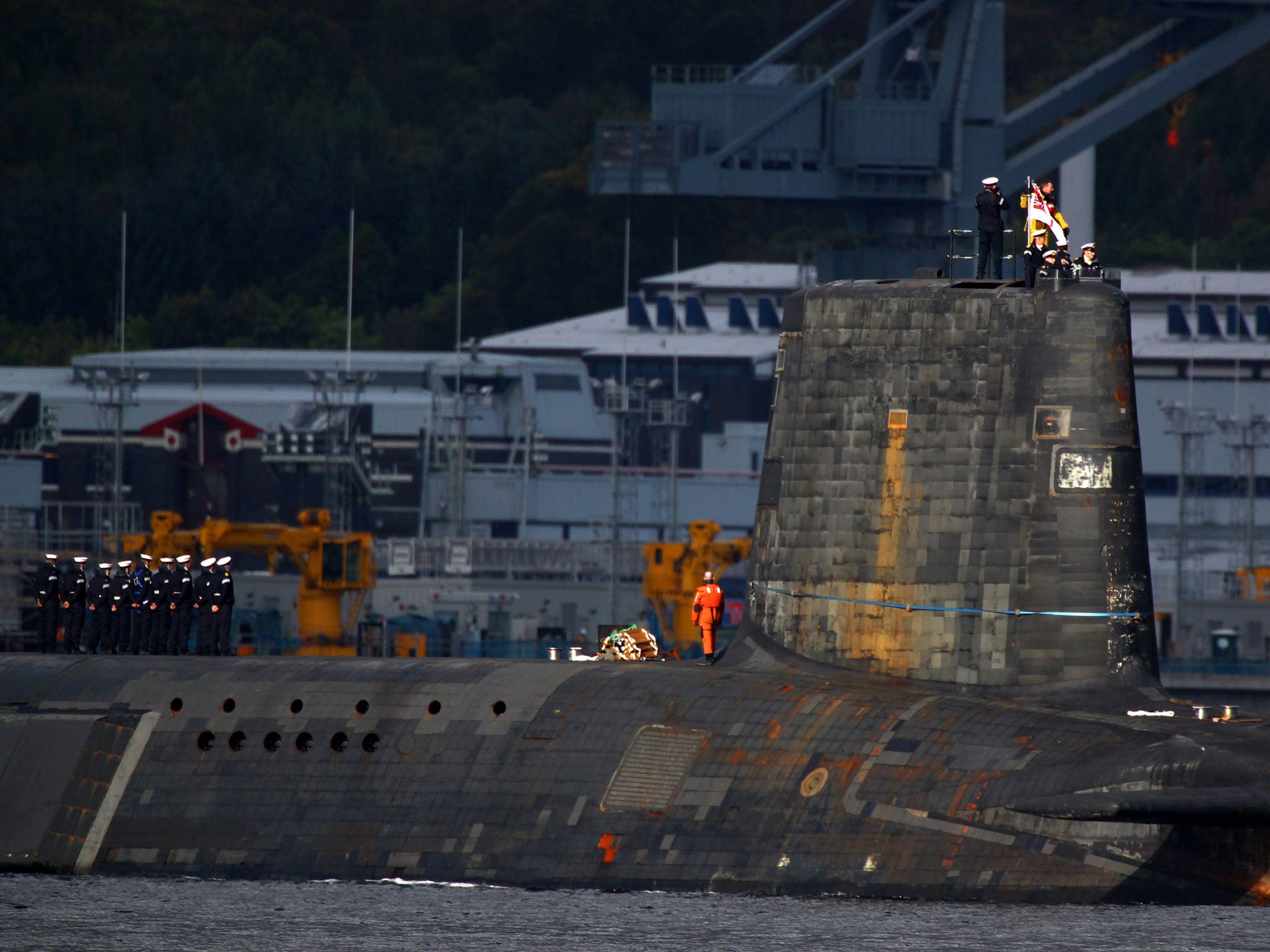If Scotland votes Yes, what happens to Trident?
There's no secure location for the submarines outside Scotland. No wonder the MoD are pushing the panic button

Since the start of the referendum campaign, the MoD has insisted that no contingency plans are being made for a relocation of Trident in the event of Scottish independence. They were relying, so they said, on the good sense of the Scottish people not to vote for separation. And even as the polls have swung towards a Yes vote, with its pledge of Scottish nuclear disarmament, the UK Government has repeatedly stressed that it has no plans to move Trident from Faslane and that it has not considered options for moving it.
Some may consider this arrogant, short sighted or a dereliction of duty, but this seeming negligence only masks the reality: that there is nowhere for Trident to go. No matter how much the MoD may now push the panic button at the thought of Trident subs steaming their way down south, the fact is there is no suitable and secure location outside Scotland for the submarines and their accompanying nuclear arsenal which is currently stored at Coulport. In that context it is easy to understand the recent desperation displayed by top politicians about a potential Trident expulsion and the race by our political leaders to try and recoup the situation.
No doubt panicky MoD planners have turned to the original research which looked into potential locations for Polaris, Trident’s predecessor, half a century ago. Dusting off the dossiers, they will have found that a number of sites were considered in England and Wales. There were three English sites on the shortlist. Portland and Falmouth were ruled out through cost, the absence of a suitable location for a nuclear weapons store, the necessity to abandon and demolish villages and their outstanding locations – on National Trust land or on the UNESCO world heritage Jurassic Coast.
The third option, Devonport, which was also ruled out in 1963, is the most frequently suggested today, not least because it is where Trident submarine refits are carried out. But moving Trident here would mean finding space for the submarines within the existing dockyard site and finding somewhere to build a nuclear armaments site. This option would also mean purchasing National Trust land, demolishing housing and relocating residents. Worse still, Plymouth, with a population of a quarter of a million people, would be in immediate proximity. It is inconceivable that the Office of Nuclear Regulation would allow a nuclear weapon store so close to a major population centre.
The Welsh option on the shortlist was Milford Haven. Introducing Trident there today would result in the closure of three major petrochemical facilities and cut off one of Britain’s main sources of gas – even supposing the Welsh were willing to accept its relocation within their borders.
Barrow in Furness, where the submarines are built, and now mooted by some, was not even seriously considered in 1963 because the channel which serves it is too shallow for a submarine base.
So on reflection, the panic of those in government and opposition who back the retention of Trident and its replacement is pretty understandable. Their beloved ‘deterrent’ will have no viable home, and the legal, moral and economic logic of disarmament will have to be contemplated, whether they want to or not. The very real danger of course, is that Westminster would use its leverage in the independence settlement to force the Scottish government to concede a temporary or long lease on Faslane, to allow Trident to remain: worst of all, a Guantanamo-style sovereign base, bypassing the will of the Scottish electorate, for whom the expulsion of Trident has been such a motivating factor in the referendum debate. If Scotland votes for independence, its new government must not countenance any such compromise on Trident.
Kate Hudson is General Secretary of the Campaign for Nuclear Disarmament and a leading anti-nuclear and anti-war campaigner nationally and internationally



